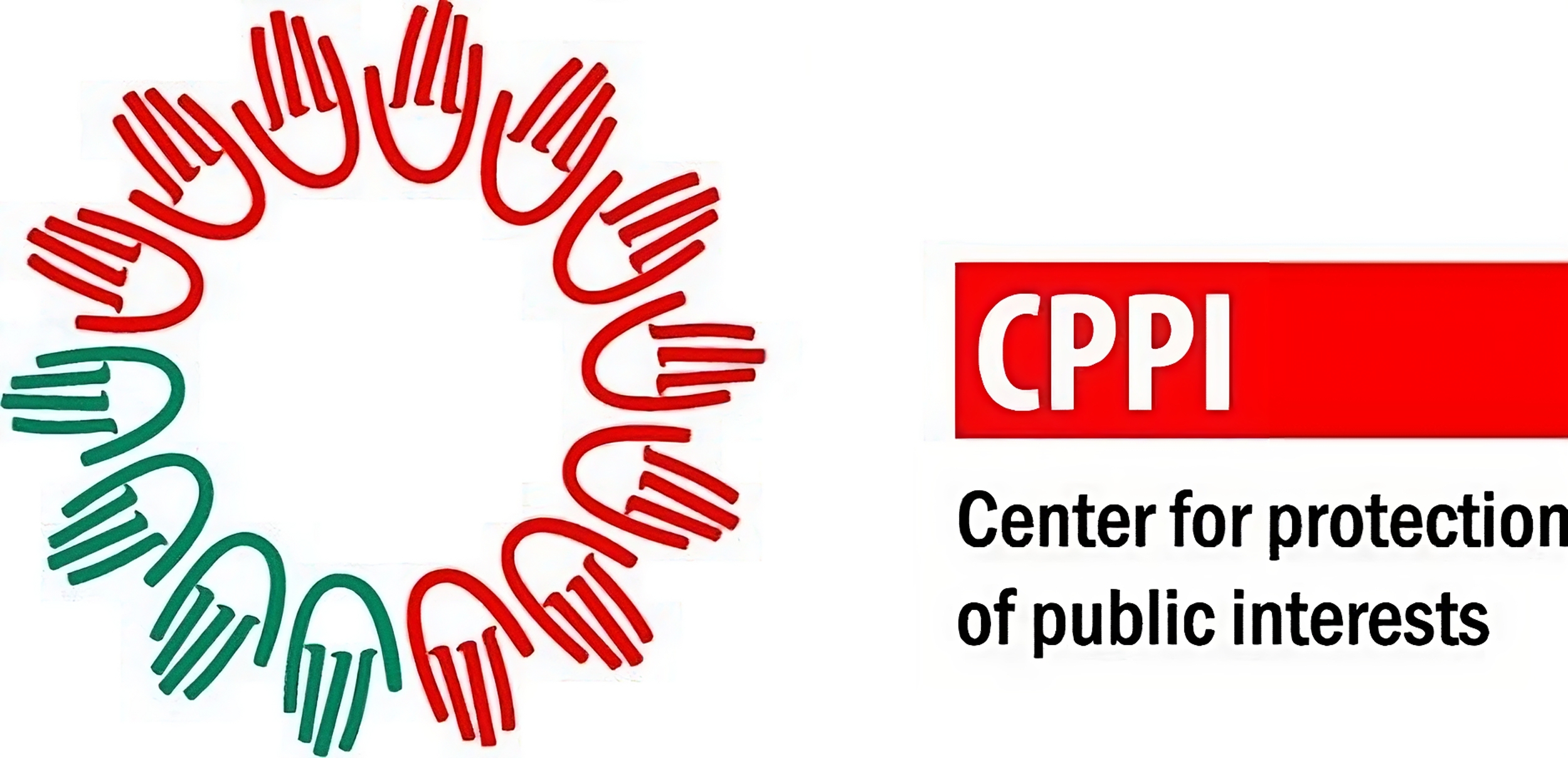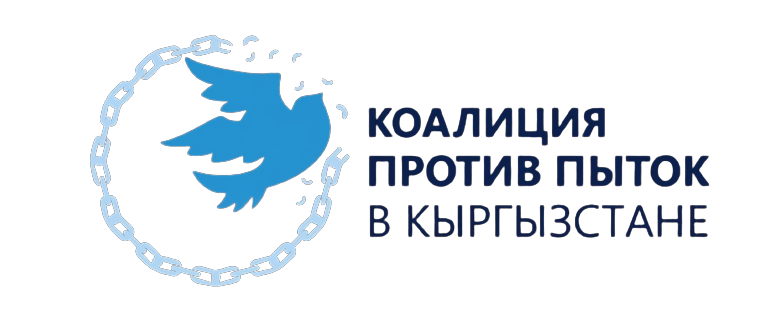Legal Safeguards
The Kyrgyz Republic imposed a ban on the use of torture. On 26 July 1996, the country acceded to the UN Convention against Torture and Other Cruel, Inhuman or Degrading Treatment or Punishment (CAT). The Optional Protocol to the Convention against Torture (OPCAT) is a supplement to the Convention, which contains additional provisions and procedures not included in CAT; Kyrgyzstan acceded to OPCAT on December 29, 2008.
ACRONYMS AND ABBREVIATIONS
- BPP – Body of Principles for the Protection of All Persons Subject to Any Form of Detention or Imprisonment
- BPTP – Basic Principles for the Treatment of Prisoners
- BPUFF – Basic Principles on the Use of Force and Firearms by Law Enforcement Officials
- CAT – Convention against Torture and Other Cruel, Inhuman, Degrading Treatment or Punishment
- CCLEO – Code of Conduct for Law Enforcement Officials
- CRC – Convention on the Rights of the Child
- GC- General Comments of the UN Human Rights Committee
- ICCPR – International Covenant on Civil and Political Rights
- KR CEC –Kyrgyz Republic Criminal Executive Code
- MI Principles – The Principles for the Protection of Persons with Mental Illness and the Improvement of Mental Health Care
- OPCAT – Optional Protocol to the Convention against Torture
- RPJ – UN Rules for the Protection of Juveniles Deprived of Their Liberty
- SMRs – Standard Minimum Rules for the Treatment of Prisoners
| Research Matter
|
Standard
Excerpts from laws |
References to the provisions of international law and national legislation
|
| Treatment of persons deprived of their liberty | ||
| Torture, cruel and inhuman treatment | No one shall be subjected to torture or to cruel, inhuman or degrading treatment or punishment.Everyone who is deprived of his/her liberty has the right to humane treatment and respect for human dignity.
No person shall be subjected to torture or cruel treatment. Any allegations of torture or ill-treatment are to be promptly or thoroughly investigated with the results of the investigation to be submitted to the competent state authorities. |
KR Constitution – Article 22
ICCPR – Article 7, Article 24 (regarding children) CAT – Articles 1, 2, 16 CRC – Articles 19,37 BPP – Article 6 SMRs – Article 31 |
| Use of force or restrictive measures |
Persons serving their sentences are entitled to courteous treatment by the staff. They should not be subjected to cruel or degrading treatment. The coercion measures can be applied to convicts only on the basis of this law. Force shall be used only legally as a last resort and to the minimum extent possible. Any use of force shall be documented, accountable and reviewed from the point of necessity, proportionality and compliance with established procedures. Immediate access to medical examination and treatment shall be provided whenever force is used. Additional measures of restraint of liberty shall onlybe used lawfully and no longer than necessary, and not as punishment. |
KR CEC – Article 11
Useofforce: SMRs – Article 54 BPUFF – Articles 9, 15, 16 CCLEO – Article 3 Additional restriction of liberty: SMRs – Articles 33-34 RPJ – Article 64 MI Principles – Article 11 (11) |
| Solitaryconfinement |
Convicts transferred to cell-type premises or solitary confinement cells as punishment shall have the right: 1) to spend up to 50% of the minimum wage established by law earned in a correctional facility on food and basic necessities; 2) receive one parcel or package and a postal wrapper; 3) enjoy a daily walk of one and a half hours; 4) subject to the permission of the institution’s administration, to have one short visit; Convicts transferred to cell-type premises or solitary confinement cells shall work separately from other convicts. Placement in conditions that can be considered a solitary confinement should be short and limited and be accompanied by safeguards such as access to a medical examination, a review of the decision on solitary confinement and an appellation. A person placed in such conditions shall never be denied access to basic necessities, including food, lighting, and physical exercises.
Punishment in the form of solitary confinement in respect of a minor is a direct violation of his/her rights. |
KR CEC – Article 90
BPTP – Article 7 UNHRCGC20 – Article 6 SMRs – Article 32 |
| Protection measures | ||
| Information |
Each detained person must be informed promptly of the reasons for his/her detention, explained and ensured his/her rights, including the right to medical examination and assistance of a doctor. Persons in custody or detention have the right to: – Become acquainted with the Internal Regulations, including their rights and duties, the regime of detention, disciplinary requirements, and the procedure for submitting proposals, statements and complaints. Persons deprived of their liberty shall be effectively informed of their rights and duties and the rules in force in the place of detention. Persons who have been arrested shall be informed of the reasons for their arrest, the charges brought against them and their rights. Any questioning shall be conducted in accordance with the procedures established by law. |
KR Constitution – Article 24
paragraph 5 KR Law “On custody of persons suspected or accused of having committed a crime” – Article 16 BPP – Articles 10, 13 SMRs – Article 35 MI Principles – Article 12 |
| Disciplinary procedures |
Convicts must fulfill the duties of a citizen of the Kyrgyz Republic established by law and observe the moral standards of conduct accepted in the society. Convicts must comply with the requirements of the criminal executive law, which determines the procedure and conditions for serving a sentence, and laws and regulations adopted in accordance therewith. Convicts must comply with the statutory requirements of institutions’ administrations and bodies executing punishment. Disciplinary procedures are represented by clear and concise rules, and are well known to both personnel and persons deprived of their liberty. Rules and sanctions shall be lawful, reasonable and proportionate, and applied fairly and consistently. Persons deprived of their liberty are entitled to protection and the right to appeal. |
KR CEC – Article 10
SMRs – Articles 27-32 BPP – Article 30 |
| Complaintsandinspections |
Convicts have the right to submit proposals, statements and complaints to the administration of an institution or a body executing punishment, to higher authorities, state authorities and local self-government bodies, public associations, and to interstate bodies for the protection of human rights and freedoms, if all available domestic remedies have been exhausted. Convicts have the right to provide explanations and maintain correspondence, submit proposals, statements and complaints as specified in part four of this article in their native language or in any other language they speak, to use the services of an interpreter when necessary. Responses are given by convicts in the language of approach. If the latter is not possible, responses shall be provided in the state or official language. The translation of the response into the language of approach is the responsibility of an institution or body executing punishment. Convicts can submit proposals, statements and complaints with regard tothe violation of their rights and legitimate interests. Proposals, statements and complaints can be submitted by convicts in a verbal or written form. They are considered by the administration of institutions and bodies executing punishment. Persons deprived of their liberty shall have access to effective external and internal grievance mechanisms – they shall have the opportunity to file a complaint if, and when they wish, without fear of repression. Complaints shall be treated fairly, within a reasonable time and effectively. Inspections shall be conducted on a regular basis, and people shall have the opportunity to approach law enforcement bodies freely with all the related information to remain confidential. |
KR CEC – Articles 11, 14
SMRs – Articles 55, 35-36 BPP – Articles 29, 33 MI Principles – Articles 14, 18, 19, 21, 22
|
| Categories of persons deprived of their liberty |
Women and men, adults and minors shall be kept separately in correctional institutions. Men and women sentenced to deprivation of their liberty for the first time shall be kept separately from those who had previously served a sentence of imprisonment. Women who are sentenced to imprisonment for the first time and those who had previously served this sentence cannot be kept in the same institution. Convicts who have demonstrated especially dangerous recidivism sentenced to life imprisonment, persons for whom life imprisonment was replaced by deprivation of libertyas pardon shall be isolated from the other categories of inmates. Convicts who are former employees of courts and law enforcement bodies shall be kept separately from the other convicts in the same correctional institution or in separate correctional institutions. Other convicts may also be referred to such institutions. The separation of convicts specified in this article does not apply to medical correctional institutions, and penal colonies with children’s homes. Persons transferred to the said institutions shall be kept under the conditions established by law for the type of colony decided upon by the court. Convicts with infectious diseases, shall be separated from one another and convicts with no infectious diseases. To protect persons deprived of their liberty and to ensure that special needs for different categories of such persons are met, they shall be kept separately from each other on grounds of gender, age and legal status: juveniles shall be kept separately from adults; the accused shall be kept separately from the convicted; men shall be kept separately from women. Particular attention must be paid to the specific needs of groups such as children and young people, women and the elderly, people with disabilities, foreign citizens, minority groups and other vulnerable groups to ensure their safety, equal access to all facilities and service; the conditions they are kept in as well as treatment must meet their needs. |
KR CEC – Article 52
ICCPR – Article 10 (2) UN HRC GC21 p.9 UN HRC GC20 p.13 SMRs – Articles 8, 85 RPJ – Article 29 BPP – Article 8 |
| Registration |
Persons sentenced to deprivation of their liberty shall start serving their sentences not later than ten days from the date of receipt by the administration of the pre-trial detention facility of the notification of sentence’s entry into force. During these ten days, the convict is entitled to a short visit by close relatives. The procedure for sending convicts to correctional institutions is determined by the Kyrgyz Republic Government. The administration of the pre-trial detention facility must inform one of the family members or relatives of the choice of the convict, in respect of which the verdict has entered into legal force, about the place where he/she will be serving the sentence. Everyone sentenced to deprivation of liberty must have his/her personal file. Convicts shall be admitted to correctional facilities by the administration in accordance with the procedure established by the Kyrgyz Republic Government. Convicts who arrived in a correctional institution shall be placed in the quarantine unit for a period of up to ten days. The administration of the correctional institution shall immediately notify one of the convict’s family members or relatives indicated by the convict about the place where he/she will be serving the sentence. Data regarding the identification of persons deprived of their liberty, the legality of the grounds for such deprivation, the time of detention, the time of arrival/departure in/from the institution, the physical condition at the time of arrival and departure shall all be registered along with the description of any and all incidents that took place. |
KR CEC – Articles 47, 51
BPP – Article UN HRC GC20 p.11 SMRs – Article 7
|
| Living conditions | ||
| Accommodations |
In the Kyrgyz Republic, prisoners sentenced to deprivation of liberty who are engaged in labor are subject to compulsory state social insurance; convicted women must be in addition provided with maternity benefits on general grounds. The standard living space per convict in correctional colonies must be at least two square meters. Convicts must have individual beds and bedding. Women’s correctional facilities must have children’s homes if necessary. People in places of detention shall be kept in safe, clean, and decent premises, which meet their individual needs. Living conditions including space, lighting, ventilation, heating, hygiene, clothing and bedding, food, beverages and exercise shall all be sufficient to adequately ensure the health, dignity, privacy and other needs of inmates. |
KR CEC-Articles 70-72
SMRs – Articles 9-14, 26 |
| Personal hygiene and sanitation |
The administration of the correctional facility must implement the established sanitary, hygienic and anti-epidemic requirements that ensure the health of convicts. In the case of a denial of food intake by a convict person, which poses a threat to his/her life, compulsory feeding is allowed on medical grounds Sanitary and hygienic supplies and procedures shall be adequate to ensure the health, dignity and private life of persons deprived of their liberty. Those deprived of their liberty shall at any time have access to toilets and clean water, regular access to bathing and shower, and the necessary toiletries. |
KR CEC – Article 73
SMRs – Articles 12-14, 15-16 (personalhygiene), 17-19 (clothing and bedding) |
| Food |
Convicts must be provided with high-quality and versatile food in places of deprivation of liberty, and should be able to purchase food and basic necessities using money on their personal accounts. The food cooking and serving practices must meet the hygiene standards. Persons deprived of their liberty shall be provided with satisfactory food and beverages which are adequate in terms of quantity, quality and variety, ensure a healthy diet and meet their individual needs. The food cooking and serving practices must meet the hygiene standards. |
KR CEC Article 60
SMRs – Articles 20, 26 RPJ – Article 67 |
| Activities and communication | ||
| Regime and activities (work, training, religion, leisure) |
Convicts are entitled to make telephone calls, send letters and telegrams at their own expense. They may also receive parcels, purchase literature from a trade network. Once a week they must be shown a film. Convicts must be allowed to leave for a short period of time outside the institution, and meet with relatives. Prisonersmaygoforawalkinthedaytime. People deprived of their liberty shall enjoy at least one hour of physical exercise in the open. They must be able to spend time outside their cells, get involved in activities important for their physical and mental well-being and personal development and reintegration into society. Such activities include important and rewarded work, education, entertainment and cultural activities. The working and health conditions as well as safety shall be monitored. Persons deprived of their liberty shall have the opportunity to exercise their right to worship, practice their religion and have access to representatives of their religion. |
KR CEC – Articles 61-69
SMRs – Articles 21, 40-42, 65-66, 71-78 RPJ – Articles 32, 38-48 BPTP – Articles 3, 6, 8 BPP – Article 28 ICCPR – Article 27 MI Principles – Article 13
|
| Access to communication |
Convicts have the right to be visited in the territory of the correctional institution: short visits – for up to four hours, lengthy visits – for up to three days. Convicts serving a sentence in correctional institutions are may receive parcels, packages and postal wrappers. Convicts may receive and send an unlimited number of letters and telegrams at their own expense. Convicts are entitled to telephone conversations of up to fifteen minutes each. Communication with the outside world and, in particular, family members should be maintained through correspondence and visits. Any conditions, restrictions or monitoring of visits or external communication should be reasonable, justified and proportionate. All persons deprived of their liberty must have the right to be visited and communicate confidentially with legal advisers. Foreigners must have access to diplomatic and consular representatives. Detainees shall be able to notify a third party about their detention, have access to a lawyer, have the right to a medical examination and the right to be brought before a court as soon as possible. |
KR CEC – Articles 61-64
ICCPR – Article 23 BPP – Articles 15, 19 SMRs – Articles 37, 92 RPJ – Article 59 ICCPR – Articles 9. 14 UN Recommendations on the Treatment of Foreign Prisoners
|
| Medical service | ||
| Medical service |
Treatment, preventive and sanitarycare for prisoners sentenced to deprivation of liberty shall be organized and provided in accordance with the legislation on health care, and the procedure and conditions for serving the sentence. Medical services shall be provided to convicts by medical and preventive institutions (hospitals, specialized hospitals: psychiatric and tuberculosis, medical units), while outpatient treatment of patients with active form of tuberculosis, chronic alcoholism drug addiction, and HIV must be done in treatment correctional facilities. Medical care, including medical, psychiatric, dental, pre- and post-natal care, shall be provided on an equal and fair basis to all persons deprived of their liberty, as an equivalent standard available in the society, while observing decency, privacy and dignity. All persons shall have access to a medical examination. |
KR CEC – Article 73
SMRs – Articles 22-26, 82-83 BPTP – Article 9 BPP – Articles 24-26 CCLEO – Article 6
|
| Staff | ||
| Staff |
The following types of control and supervision apply to the activities of institutions and bodies executing criminal punishment for the purpose of proper execution of criminal penalties, and the observance of convicts’ rights and freedoms: – departmental control; – medical and sanitary-epidemiological control; – control on the part local government and self-government; – public control; – international control; – prosecutor supervision; – parliamentary control; – judicial control. The staff must ensure that all persons held in custody are treated humanely with respect for their dignity. All staff must have the skills, qualities, professional knowledge and support necessary to fulfill their functional duties and ensure a safe and peaceful environment where human rights are respected. |
KR CEC – Article 17-1
MSRs – Articles 46-54 RPJ – Articles 81-87 UN HRC GC20 p.10
|
 +996 554 999 222
+996 554 999 222







Follow us on social networks